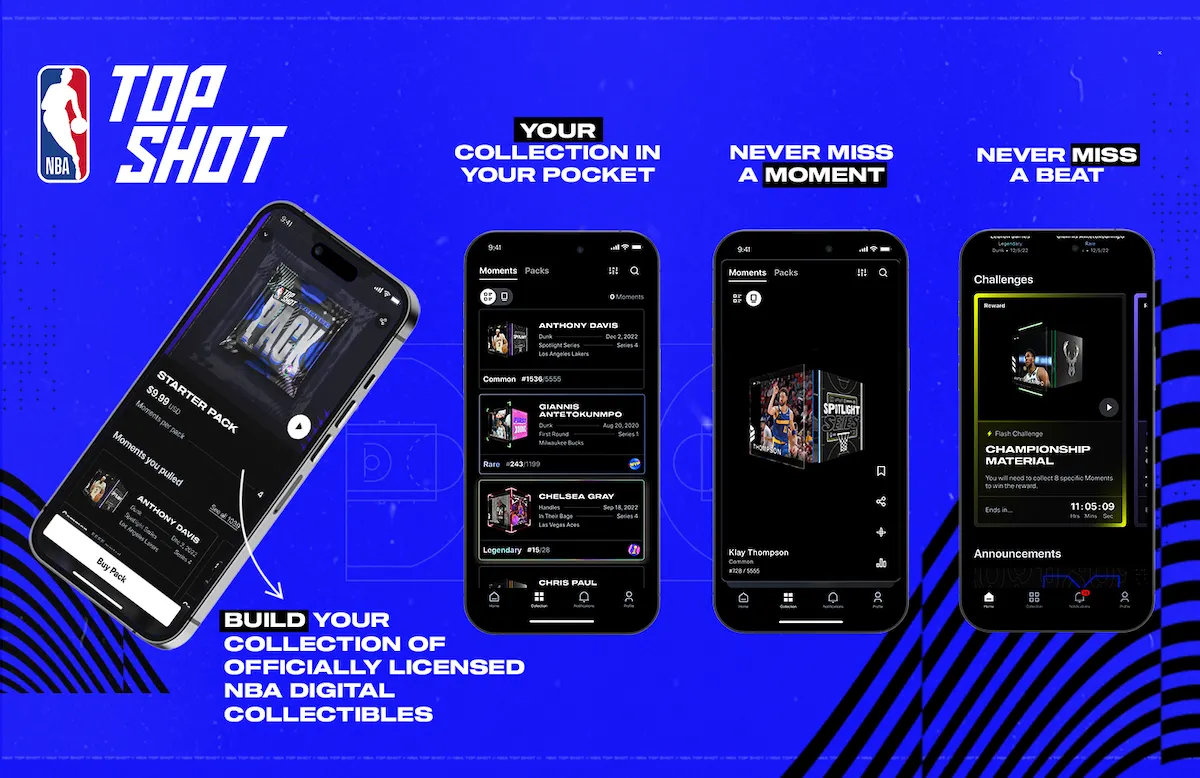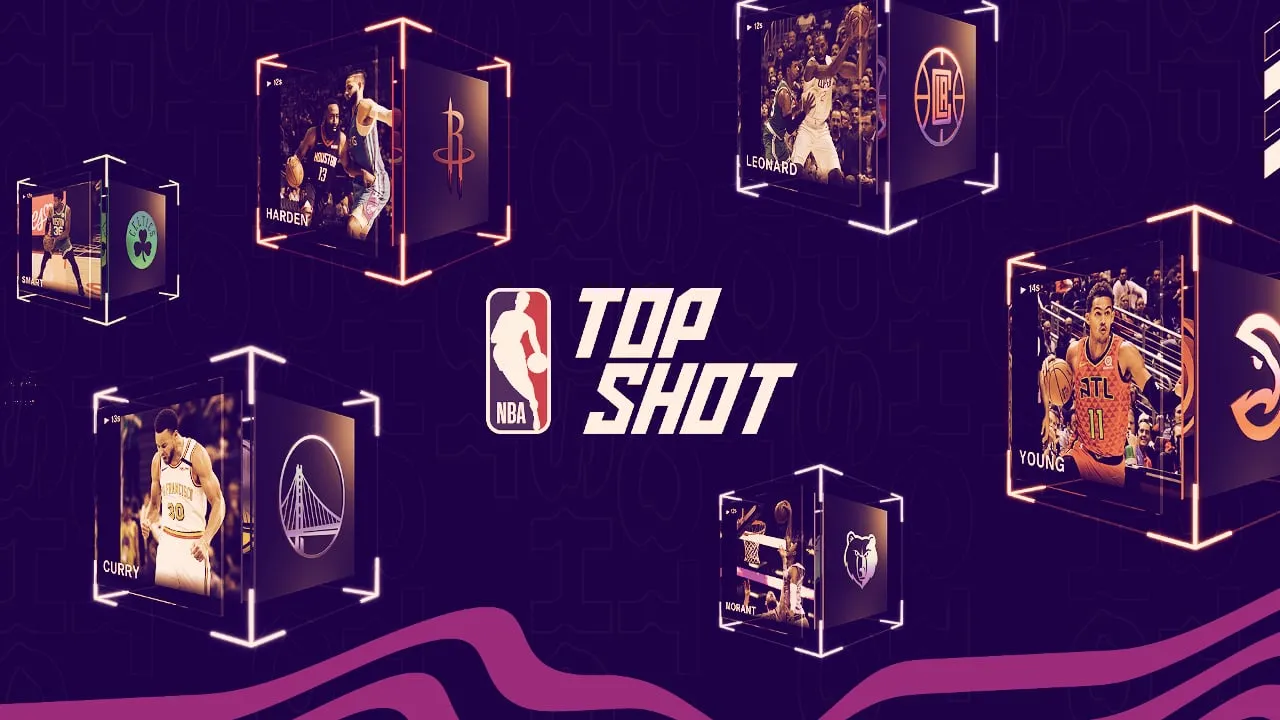NBA Top Shot, the officially licensed basketball NFT platform that has generated more than $1 billion in sales to date, is headed to mobile with the launch of smartphone apps through Apple’s iOS App Store and Google’s Android Play Store.
For NBA Top Shot users, the native apps aim to provide a smoother way to access and buy digital collectibles on the go. But for creator Dapper Labs, which developed the Flow blockchain and also runs platforms like NFL All Day and UFC Strike, it’s the first step in the company’s transformation into a mobile-first Web3 company.
“The NBA Top Shot app will really be the start of our move to be a mobile-first company,” Dapper Labs Senior VP of Sports Partnerships Jennifer van Dijk told Decrypt. She added that the move will let Dapper “lead the way in what mobile looks like in Web3, and continue our path of wanting to bring everybody to Web3.”

Dapper Labs will initially release a limited version of the app. At first, users will be able to view their own collection of NBA Top Shot NFTs, see platform activity, be notified of drops, and purchase a starter pack of NFT moments. More features will be added over time.
The ability to buy NFTs through a mobile app is the new twist here. Web3 startups and NFT marketplaces have had to restrict the ability to transact NFT assets via mobile apps due to Apple and Google expecting a cut of sales.
That wrinkle potentially makes primary sales more expensive for mobile users, but really throws a wrench into the idea of secondary market sales between users. Where does Apple’s 30% fee come from in that case? It’s a hurdle that Web3 startups have been wrestling with over the past months since the tech giant clarified its stance towards NFT sales and uses.
Van Dijk said that Dapper is bearing this in mind while developing and expanding the Top Shot app, and working closely with not only its sports league partners, but also Apple and Google to try and find the best path forward. When users buy an NBA Top Shot starter pack through one of the mobile apps, the price shown will include any fee considerations on Dapper’s part.
“When we present a price, that will include everything that would be taken out or managed by us on the back end, and the consumer will have that price,” she explained. “We're committed also to keeping prices reasonable for fans and making them accessible.”
She pointed to last week’s sold-out drop of 100,000 Top Shot starter packs designed around LeBron James’ feat of breaking the NBA’s all-time scoring record. Those packs, sold through the web interface, cost $9 apiece.
“We're going to continue in that trend, as well, on the starter packs,” van Dijk added. “Maybe not $9, exactly, but reasonable and affordable.”
Mobile evolution?
Eventually, the goal is to expand the Top Shot mobile apps to enable peer-to-peer marketplace trades between users—despite the challenges given the fees that Apple and Google charge for in-app transactions. Van Dijk said that Apple and Google appear “very interested in exploring this space with the right partners and experiences.”
Already, NBA Top Shot sees as much as 75% of its traffic from mobile web, Van Dijk said—but trying to buy and handle NFTs via a mobile browser can be a challenge.
Dapper Labs was one of the brightest stars in the early days of the NFT boom in 2021 as Top Shot permeated the mainstream, but it has faced more recent challenges amid falling NFT sales. In November, the Canadian firm laid off about 22% of its team citing market conditions as the broader NFT and cryptocurrency markets struggled.
Embracing mobile in this way signals a new path forward as the company finds its place in the ever-changing Web3 industry. The Top Shot app is the first step towards “bridging that divide” between clunky Web3 experiences and a potentially much larger audience of smartphone-wielding users that don’t have easy access to NFT experiences.
She added that Dapper’s “hope for the future” is that the company and its partners can “over time, come together and figure out what evolves from here.” Part of realizing that ambition, she suggested, is playing by the current mobile app marketplace rules and then trying to nudge the regulations towards a more Web3-friendly place.
“There's no easy answers,” van Dijk said. “But I think that is also the ability for us to be good partners together, and come to those things together—instead of in any way trying to go around the rules or things like that. [We’ll] change together, evolve together, and I think we'll get to a pretty good place.”

